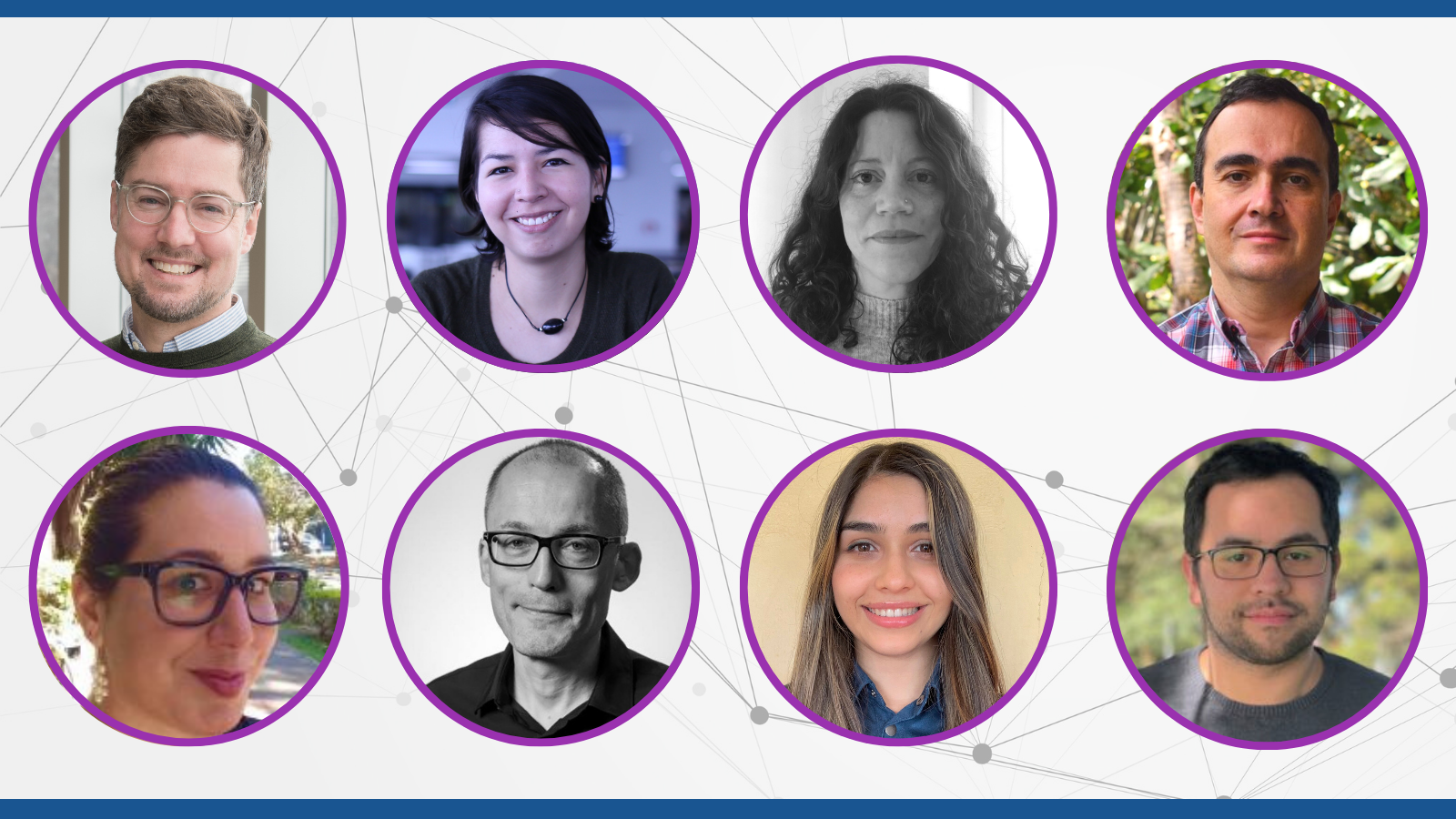The 2023 Open Science webinars unveil exciting Initiatives
To recap the highlights of this year's Open Science webinar series, we invite you to review the various events that featured innovative Open Science projects from Latin America and beyond.

Throughout 2023, the Hernán Santa Cruz Library organized eight webinars on Open Science, Open Access, and Citizen Science. The webinar series, which started in 2017 has opened the doors to knowledge under the LEARN Project, aiming to foster and deepen collaboration between professionals in the Open Science field in Latin America, the Caribbean, and beyond.
If you missed one of the events or want to watch the recording, you can find them here:
How to Build a Regional Perspective of Training for Open Science (in Spanish)
The webinar addresses the contribution of libraries and research institutions to create a harmonized training landscape for Open Science. It highlights the "Skills4EOSC" project, focusing on providing a coherent training overview and shaping the goals of the European Open Science Cloud (EOSC).
Speaker: Juliana Giroletti, member of the EOSC International Relations Office at the TU Wien Library, Austria, leads the Skills4EOSC project activities under the Horizon Europe program at TU Wien.
How to Create Successful Institutional Policies for Open Science (in Spanish)
The Catholic University of the Most Holy Conception (UCSC) presents "Transparency: UCSC's Commitment to Open Science." The presentation shares the InES Open Science project to integrate a culture of Open Science in its research processes and ensure access to scientific content for the university community and the general public.
Speakers: Camila Molina Cuevas, Lawyer and Legal Advisor of the InES Open Science project at the UCSC, and Gabriel Arriagada Ríos, Head of the Competency Training Unit at the UCSC Research Directorate and Administrative Coordinator of the InES Open Science project at the same university.
Open Access Publishing: Contrasting Research Documents on COVID-19 and UN Sustainable Development Goals (in English)
How accessible are research documents on major global challenges? In this presentation, Vincent Larivière explores how much research on COVID-19 and the UN Sustainable Development Goals (SDGs) has been published in open access.
Speaker: Vincent Larivière holds the UNESCO Chair on Open Science at the University of Montreal, where he is a Professor of Information Science and Associate Vice-President (planning and communications). He is also the Scientific Director of the Érudit journal and the Observatory for Science and Technology (OST).
LA-CoNGA physics: A European-Latin American Collaboration in Advanced Physics Education (in Spanish)
LA-CoNGA physics (Latin American Alliance for Capacity BuildiNG in Advanced Physics) is an Erasmus+ project that establishes a European-Latin American network for capacity building in advanced physics. Through the support of open-source and open-data communities, a growing community committed to the principles of open science has been created through formal training, remote access instrumentation labs, and hackathons.
Speaker: Reina Camacho Toro is an experimental particle physicist, working at the French National Research Center (CNRS) since 2018 and a member of the ATLAS collaboration at the Large Hadron Collider (LHC) at CERN since 2009.
Lessons Learned in Open Science Training at the University Level (in Spanish)
Since 2020, the University of Antioquia in Medellin, Colombia, has led university training initiatives to promote knowledge and application of Open Science. Initially aimed at its academic community, these training actions respond to the growing demand and scarcity of this type of training in higher education institutions in Latin America. This presentation shares lessons learned from these activities.
Speaker: Alejandro Uribe Tirado is a Social Communicator-Journalist with a Ph.D. in Science Communication. He is also a Professor-Researcher at the Inter-American School of Library Science, University of Antioquia (Medellin-Colombia).
Citizen Science: An Opportunity for Libraries and Social Actors (In English)
Citizen Science, involving inclusion, contribution, and dialogue with the public in research, is spreading in research institutions and universities and could be a possible response to complex global challenges. Several Citizen Science centers in Europe have been inaugurated in recent years, and research libraries play a significant role in this field.
Speaker: Thomas Kaarsted is the Deputy Director of the Library at the University of Southern Denmark and the Director of the Citizen Science Knowledge Center at the University, located in the library. He has been working with Citizen Science since 2017, has been the project manager in several Citizen Science projects, and is the Coordinator of the LIBER Citizen Science Working Group.
Libraries as Catalysts for Open and Citizen Science to Facilitate Participation in Science and Society (in Spanish)
Did you know that libraries can play an important role in contributing to developing citizen competencies to participate in democratic life? This webinar explores how university libraries have a crucial role to play in developing citizen skills to enable spaces for discussion and co-creation, as well as promoting citizen science and critical literacy in data, media, and digital platforms.
Speaker: Javiera Atenas holds a PhD in Education and is a Senior Lecturer at the Center for Excellence in University Teaching at the University of Suffolk in the United Kingdom. She is also the principal investigator of the Latin American Open Data Initiative (ILDA) and a Senior Fellow of the British Academy of Higher Education. She currently collaborates with the UNESCO Open Education Policy team on open education policy development.
Participatory Societies to Achieve the SDGs: Mobilizing Libraries for Citizenship (in Spanish)
Libraries, forming an extensive network of institutions worldwide, play a key and active role in reducing gaps in access to information and knowledge. These public spaces have demonstrated, through concrete initiatives, their commitment to contributing to the fulfillment of the Sustainable Development Goals of the 2030 Agenda.This event shares experiences and best practices in three areas where libraries play a prominent role: citizen science, open government, and community initiatives.
Panelists: Alejandro Santa, Isabelle Bonhoure, Sarita Albagli, Adriana Ferrari, and María Garrido.
Country(ies)
- Latin America and the Caribbean